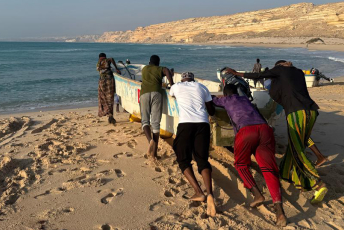Tanzania has announced an impressive rebound in its elephant and rhino populations. This follows a four-year multi-pronged fight against poaching. Other African nations can learn a lot from the anti-poaching strategy of a country considered the ‘epicentre of Africa’s elephant poaching crisis’.
Tanzania’s presidency told journalists that a state crackdown had ‘dismantled organised criminal networks’ involved in industrial-scale elephant and rhino poaching. The poaching reached crisis levels after a 2014 government census revealed it had lost 60% of its elephants in five years from 2009.
‘As a result of the work of a special task force launched in 2016 to fight wildlife poaching, elephant populations have increased from 43 330 in 2014 to over 60 000 presently,’ the presidency said in July 2019.
The increase in the elephant population by over a third and in the rhino population by over a quarter in four years is dramatic, as both species have long gestation periods. This roughly 70% drop in poaching provides vital lessons for Tanzania’s neighbours and other African countries.
The 2014 census estimated that the country had only 43 330 elephants remaining from a population of about 110 000 in 2009, representing a 60.3% (65 721) decline nationally in five years. The massive poaching was attributed to an insatiable market predominantly in Asia.
It led to Tanzania’s classification in 2013 by the Convention on International Trade in Endangered Species of Wild Fauna and Flora (CITES) among the ‘gang of eight’ countries alongside Kenya, Uganda, Malaysia, Vietnam, the Philippines, Thailand and China.
Most of the poaching occurred and trafficking originated in the three African countries, while the Asian countries were the destination market for most of the seized ivory. A similar crisis in the country’s history occurred in the 1970s and 1980s. It was also attributed to a growing demand for ivory in Asian countries.
Central to the two crises were corruption and inefficient law enforcement. In 2015 the Environmental Investigation Agency accused the country of denying corruption and official collusion with Chinese-led transnational criminal gangs. Within four years political commitment has resulted in high-profile arrests and convictions.
A combined use of intelligence, community buy-in, a militarised approach and better coordination among state agencies has helped enforce a legal framework that includes conservation and sustainable management of wildlife and protected areas.
Tanzania’s case shows that the use of modern approaches and strong policies, and political will and zero tolerance to corruption, are key to fighting poaching. In both crises the country deployed a nationwide paramilitary operation to curb poaching and developed enhanced policies to support the operation.
The CITES Conference of the Parties decisions in 2019 strengthening wildlife trade rules will complement efforts to curb poaching like Tanzania’s latest campaign and that of other countries with a similar resolve to fight poaching.
Tanzania’s response is a source of valuable lessons for other African countries such as Mozambique, which announced a dramatic 48% decline in its elephant population, and Botswana, which risks losing its long-standing success in conservation efforts due to unfavourable policies.
Deo Gumba, ENACT Regional Organised Crime Observatory Coordinator – East and Horn of Africa, ISS and Edward Phiri, Director Lusaka Agreement Task Force







